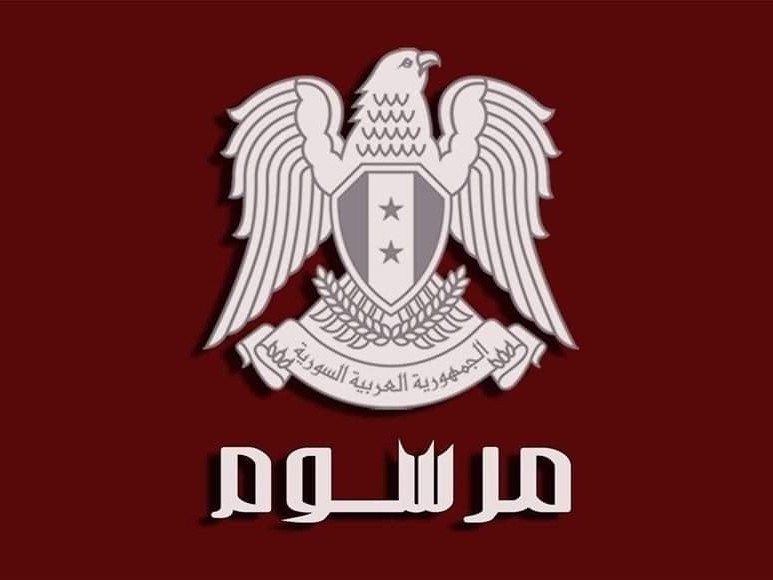President Assad issues a law ratifying Syria's accession to the Convention on the Recognition of Higher Education Studies, Certificates and Degrees in Arab Countries
President Bashar al-Assad issued a law ratifying the Syrian Arab Republic's accession to the revised agreement on the recognition of higher education studies, certificates and degrees in Arab countries with the United Nations Educational, Cultural and Scientific Organization (UNESCO) in order to raise the quality standards of university education and meet local needs in this regard.
The law enhances the possibility of cooperation and coordination between the Ministry of Higher Education and Scientific Research and its counterparts in Arab countries and Arab universities in light of the different education systems enjoyed by Syria, and facilitates the follow-up and dispatch of postgraduate students and faculty members to these universities, as well as the opportunity to exchange student grants with them and hold joint scientific conferences.
Minister of Higher Education Bassam Ibrahim explained that the law is of great importance in coordinating with Arab countries to improve the quality of the educational process in order to reach a unified vision among countries regarding the quality of education.
The minister pointed out that the law aims to collect, analyze, publish, classify and update all useful information about the higher education system of each country, in addition to collecting all information related to legislation, standards, procedures, measures and special decisions, with the aim of recognizing certificates between Arab countries while ensuring that certificates are not falsified.
The agreement aims to promote Arab cooperation to facilitate the mutual recognition of higher education certificates and degrees in their various educational modalities to benefit as much as possible from the available human resources in the field of training and research, continuous improvement of the quality of higher education and enhance the reliability of quality assurance measures and integration, in addition to taking measures related to the quality of education to enhance confidence in the credibility of certificates, establishing joint programs and awarding joint degrees, and the governance of higher education systems (transparency of education systems and encouraging the preparation of updated, reliable, appropriate and available information...) The Minister of Higher Education said.
Hussam Abdel Rahman, director of planning at the ministry, said that the agreement is based on the increasing number of students in universities, which reached 800,000 students, as well as the increasing number of public and private educational institutions, in conjunction with the increasing openness in the global higher education arena and the increasing competition between universities at the Arab, regional and international levels.
Abdulrahman said: This poses multiple challenges, including maintaining quality and accreditation standards adopted nationally, regionally and internationally; facilitating the movement of Syrian students, researchers and faculty members between Arab countries in terms of recognizing their degrees and the returns of this on GNP; the emergence of new educational patterns such as virtual education, e-learning and open education; the global and regional trend towards establishing joint scientific programs; in addition to ALECSO's endeavors: The Arab League Educational, Scientific and Cultural Organization (ALECSO) seeks to activate scientific cooperation agreements at the Arab level, noting that the organization returned to work with Syria after Syria's return to the Arab League.
